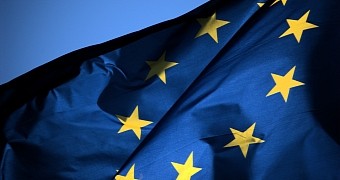Google’s troubles in Europe are far from being over. In fact, the company must now officially improve its proposal to settle the antitrust investigation that was launched by the European Commission.
The request comes from Joaquin Almunia, the European Union competition chief. He has tried to defend the way the group he leads handled the investigation into Google’s practices in the past four years, saying that the decision to accept the previous proposal wasn’t a result of the mounting political pressure.
Google was asked to improve the settlement proposal at the beginning of September. This is the fourth revision Google has to do and it comes after the previous offer, which was announced in February, didn’t really get thumbs up from competitors. Truth be told, competitors will likely never be happy with any proposal that Google comes up with, which means this is going to last a very long time.
“As part of our standard practice in an Article 9 procedure – which leads to a commitments decision – and in response to our pre-rejection letters sent before the summer, some of the twenty formal complainants have given us fresh evidence and solid arguments against several aspects of the latest proposals put forward by Google,” Almunia explains.
If the Internet giant doesn’t deliver the necessary changes, the next logical step is to move to statement of objections, Almunia says, which means that Google would be formally charged.
He adds that they’re facing a hard time trying to figure out the best way to proceed because the investigation is complex because it deals with a market that’s changing fast. Since the US regulators came up empty during their own investigations into Google’s practices, the EU Commission starts from scratch.
The parallels between Google and Microsoft's antitrust investigations in the EU
As a grim reminder that this could drag on forever, Almunia mentions the lengthy investigation into Microsoft’s practices, which took 16 years. That’s four times as much as the Google investigation has lasted so far. Unfortunately, however, there are more issues to clear with Google than there were with Microsoft.
On the other hand, Almunia is none too happy with the attitude taken by the European politicians who have tried to interfere in the Commission’s investigation, causing what the competition chief calls a “political circus.”
“I strongly reject attempts to transfer competition enforcement into an ordinary political debate,” Almunia says.
Google has offered to make some modifications to its search results pages in Europe in order to provide more space for competitors’ products in order to make them more visible. Microsoft has objected, saying it run some tests on Bing and didn’t notice any spike in the traffic of items placed in the same areas Google wants to assign.
There is, of course, the issue of how impactful such a change is on Bing and how it would affect things if it were on Google. In Europe, Google is the go-to search engine for 91.66 percent of Internet users, while Bing only accounts for a mere 3.05 percent of all searches.

 14 DAY TRIAL //
14 DAY TRIAL //